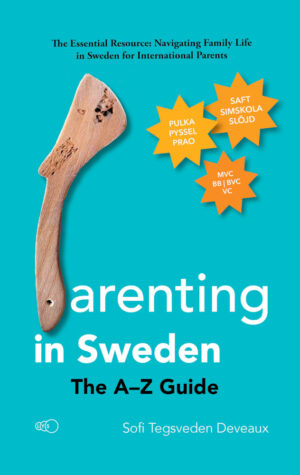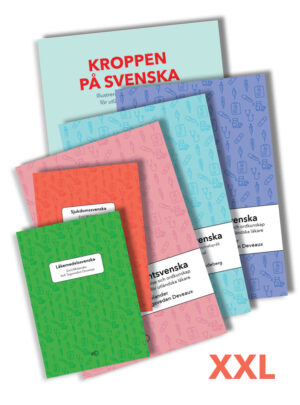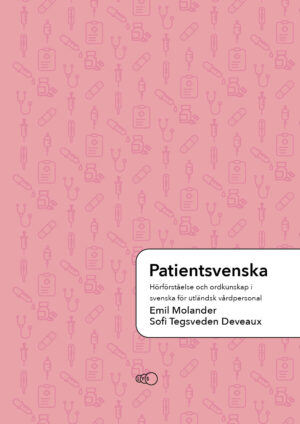Do I need to speak Swedish to get a job?
It is not necessary that you speak Swedish for all professions. In business, IT, engineering, design, research, and many other fields, many companies hire international team members on a regular basis, and the working language is often English. Most Swedes, and in particular those in qualified professions speak acceptable or good English, and are happy to do so with new colleagues.
It is, however, a good investment to learn the local language. This will definitely be considered as a competitive advantage, especially if you are aiming for a senior position, at this moment, or later. You also display long-term commitment, and willingness to learn, for a potential employer. If you do not already work in Sweden, enrolling on an intensive language course will also fill a gap on your CV, and will give you plenty of opportunity to make friends and build a network.
Personally, I also believe that you will also have much better chances to integrate with the local culture if you understand and speak the language. You will experience less frustration, and you will get through the different stages of culture shock faster. This may possibly seem a bit irrelevant if you just arrived (or is still waiting to go) to Sweden, and you are really excited about your new country. Nevertheless, most expats do at some point experience estrangement, unfamiliarity and frustration, and this can often be handled better if anticipated.
In any case, whether you decide to learn the language now, later or not at all, you will need to find out some vocabulary about your own industry. Naturally, you will need to know the title of your position, in Swedish! This is probably trickier than you would think, as dictionaries are not specific enough for such technical details. The best way, I believe, would be talking to a Swedish person – preferably familiar with your field of expertise, and asking them to write a list with the necessary terminology. Once you know what you are looking for, you can start searching.
What to look for
Swedes have a pragmatic view on career and work-life. Historically, most people had more than one profession, and this is still often the case for those working in season-dependent fields. A successful career is not so much a straight line from your dreams to your goals, but rather a winding road adapting to your own personal development. Swedish university students are on average much older than in other European countries. It is not uncommon to work a few years before ‘finding’ out what to study. This means that newly graduated often have years of experience in other fields. Employers and recruiters are used to this, and consider even seemingly irrelevant work experience significant. Therefore, do not be afraid of accepting a position although it does not fulfil all your requirements. This does not mean you cannot go back to your original path when such a door opens.
It is also worth knowing that most Swedes go on parental leave (that can be equally shared between both parents) once or several times during their career. It is also common to take a year off for trying something new, or hiking the Himalayas. This opens up for temporary positions that can be a great opportunity to become familiar with Swedish work culture, and provide a good reference for later positions.
To come to the point, what I want to say here is that it is wise to be open to accept also positions that do not qualify as your dream job. It will be easier to get your dream job once you have some work experiences, contacts and references in Sweden.
Where to look
Arbetsförmedlingen, which is the Swedish Public Employment Service, may seem like an obvious choice, but although many jobs, including all positions in the public services, are posted on their website, far from all of them appear here. Arguably, the main focus on this organisation is to deal with unemployment and to implement measures to deal with long-term unemployment. Spend a little time each week going through their vacancies posted online, but otherwise, put your energy elsewhere.
Private recruitment companies have appeared rapidly on the Swedish job market in the last ten years. They are roughly sector-specific, and can be found using Google. Remember to search in Swedish and English! You should be able to register your CV on their websites, or even contact them directly. It is increasingly common that you can upload information directly from your LinkedIn profile, and this is a great way to save time. Anecdotal evidence suggests that some few recruiters can be rather erratic and short-sighted in their approach. Although they might not show much interest in you at one point in time, does not mean that you will not be their top candidate for a position advertised three weeks later! Be patient and maintain a professional relationship.
LinkedIn in itself is also becoming an important recruitment channel. Recruiters seem to scan profiles on a regular basis, so I would really recommend you to invest some time updating and improving your profile. There is plenty of good advice on how to optimize your profile online, and in general I would say that is not particularly culture-specific. It might, however, be a good idea to check some profiles in your area of expertise, working in the city of your choice, for cues. Make sure you are consistent in terms of language. An English version is fine. In my next article, you will learn that Swedish recruiters expect your CV to be rather short. A detailed LinkedIn profile is an excellent way of giving a more detailed account of your expertise. A photograph is necessary.
You would be surprised to learn how many of my students got their first job from one of their fellow students on my language courses! Knowing someone personally is often a huge advantage when looking for work. If you are new to a country, this can be a big challenge. Try to take any opportunity to meet people, even though it might not seem directly relevant for your specific career moves. Getting to know Swedes personally can be a long-lasting effort – but when you finally become friends, it is forever! In the meantime, it is a good idea to hang out with international communities. Meetup.com arranges expat groups in Stockholm, so does Internations. Facebook is also an accessible platform for groups connecting specific nationalities in the larger cities. There is often great comradeship in expat communities, and people will go far to help someone in their own situation. I truly believe that one of the best things you can do to get a job is to have an active social life.
Although many are recruited through contacts, do not expect any fast lane into work this way. Swedes are known for doing things according to the book, and although you might have been recommended for a position, other people will be called for interviews, and you will all go through the same screening.
When to look
I do not think much of the above proves a big challenge for international job seekers. Instead, if the anecdotes I have been told are statistically accurate, I believe the greatest culture shock comes to timing. First of all, Sweden, infamously, closes down during summer. Do not count on finding much of relevance from mid-June to late August. If you begin a recruitment process in June, you might have to wait for everyone involved to go on their holiday, and come back, and also spending some time re-adjusting to work after summer – before they call you back. There is also often a gap around Christmas-time.
Some positions are advertised with a closing date. As I understand it, recruiters very rarely wait until this date before doing their shortlist. My advice is to send in your application as soon as you can, and be prepared for an interview weeks before the official closing date! After that, things slow down. A typical Swedish recruitment process can be a very slow process, where you do not hear anything from your recruiter for weeks, between interviews. I have heard of many cases when the manager in charge quits their job, or goes on parental leave in the middle of the process. Do not display any impatience with this! A Swedish expression ‘is i magen’ – keep ice in your stomach, which means that you should stay cool and focus on something else. This is another reason why it might be a good investment to sign up for a Swedish language course during your job seeking process. Time seems to go faster if you are occupied.
Check list – preparations
- Update your LinkedIn profile, with detailed information about your education and work experience. Always publish a photograph of yourself. Optimise search functions, with accurate keywords and skills.
- Update your CV, in Swedish or English.
- Make a list of things you want to include in your covering letter, so that you can write it fast when you find an interesting vacancy.
- Make sure you have at least two written recommendations, translated into Swedish or English.
- Also make sure you have at least two references, that you answer your potential employer’s question over the phone, in Swedish or English .
- For some professions, including those in healthcare, you will need a valid certification, and sometimes an extract from your police record.
- Consider taking a Swedish course, or perhaps engaging in some voluntary work in the meantime.
- Patience, plenty of patience










